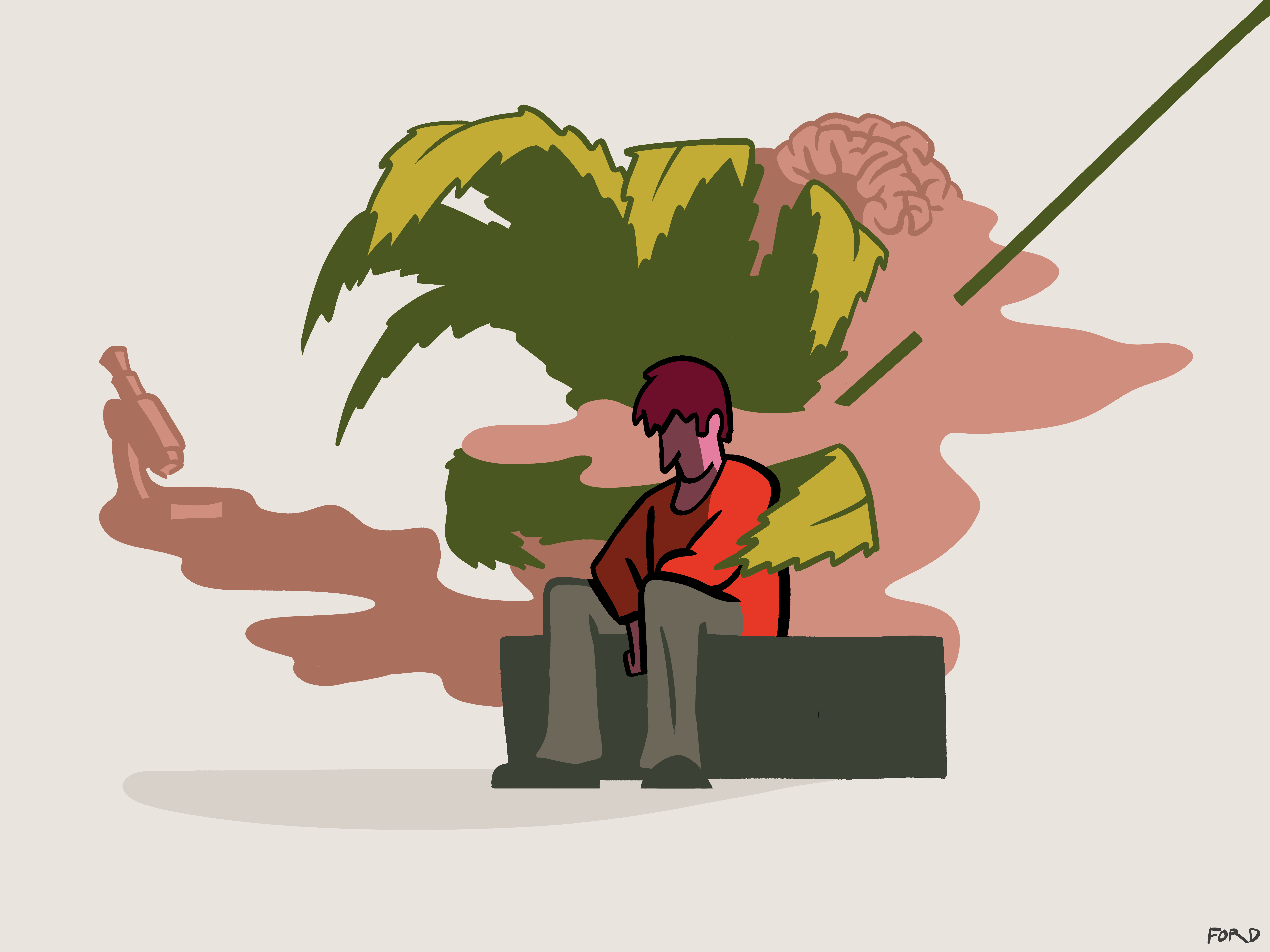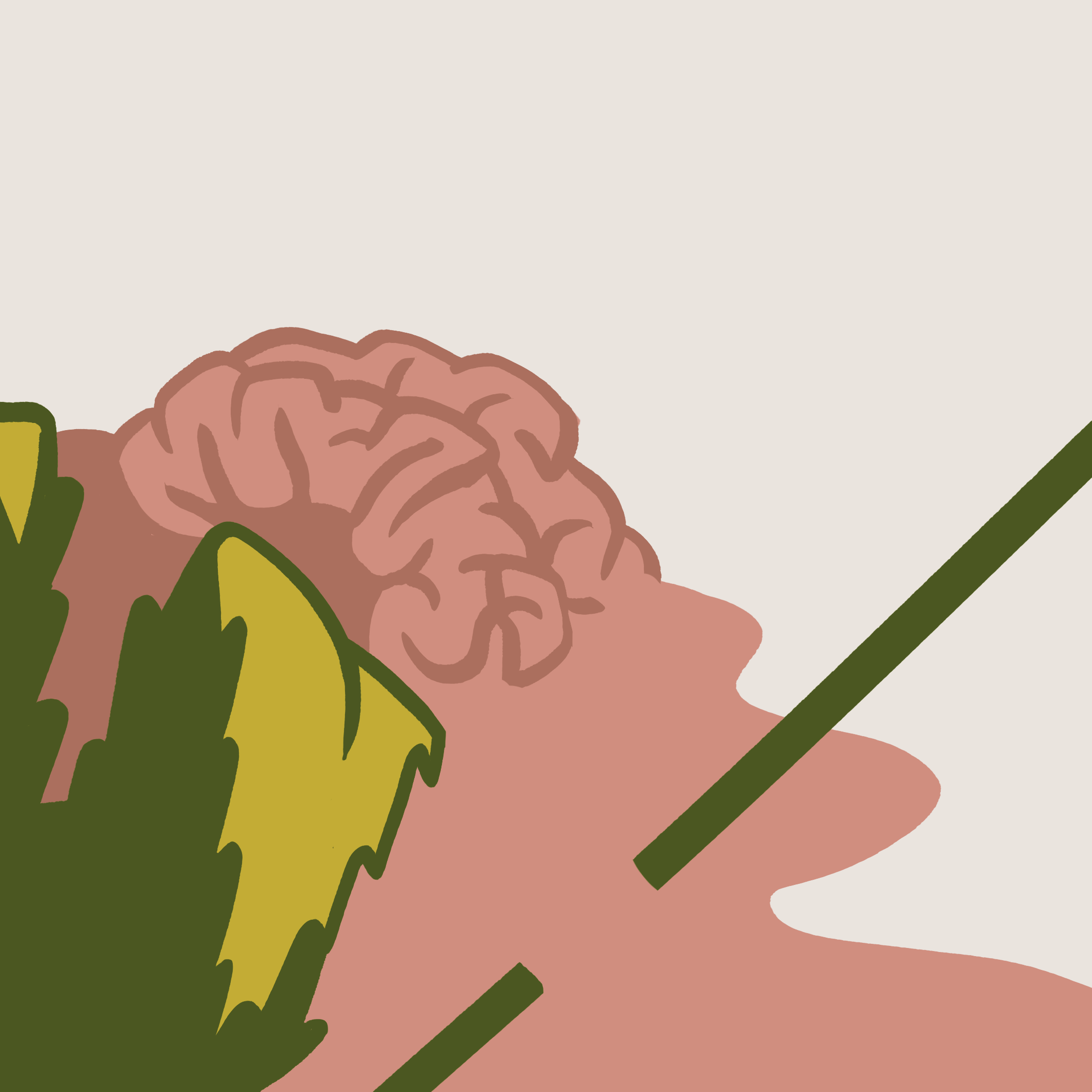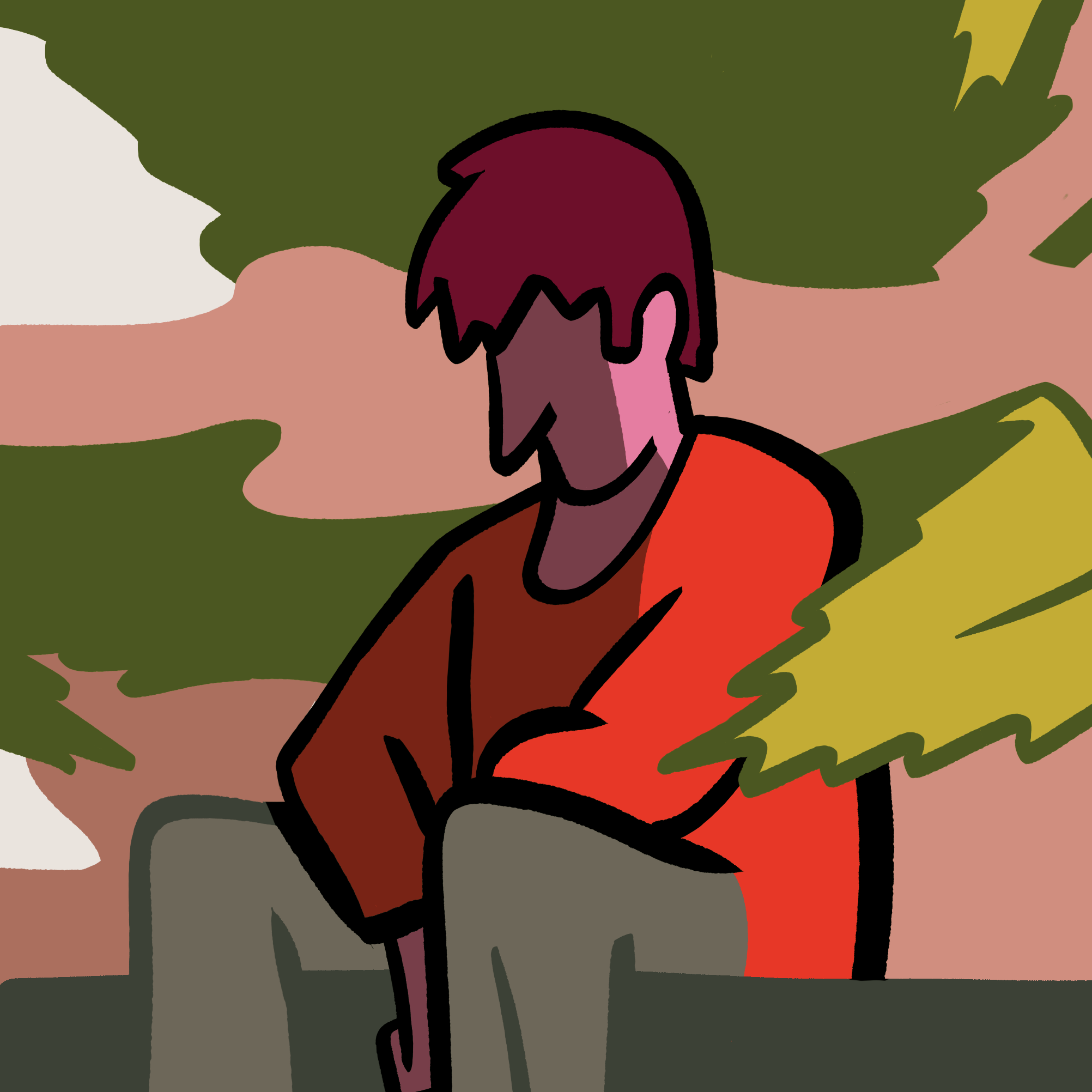The Independent's journalism is supported by our readers. When you purchase through links on our site, we may earn commission.
What do we really know about the link between cannabis and psychosis?
Frequent use of cannabis has long been associated with an increased risk of psychosis, but the amount of the drug needed is far lower than you might think, writes Ian Hamilton


The link between cannabis and mental health problems such as psychosis and schizophrenia have been discussed and investigated for decades. Over the years research has incrementally added to knowledge about the risks cannabis poses to mental health. One well established idea is that the more an individual uses cannabis and the greater the frequency of use there is a parallel risk of psychosis.
The quantity and frequency of use of any drug, including alcohol, have long been associated with an elevated risk of developing both physical and mental health problems, ranging from cancer to cognitive impairment. This received wisdom is challenged by new research that suggests even a small amount of exposure to cannabis is associated with the risk of psychosis and schizophrenia.
The researchers carried out a review of over 500 studies into cannabis and psychosis conducted between 2010 and 2020, pooling the data from these and carrying out a meta-analysis, which revealed that it was not just heavy users of cannabis that were at risk, low frequency users were, too. This is a significant finding as it not only overturns the long-held view of the potential psychological risks of cannabis use, it has implications for policy makers, public health and specialist treatment interventions.
Cannabis use is not a niche activity: an estimated 200 million people use the drug across the world. This makes it the third most popular global drug after tobacco and alcohol. Cannabis has undergone something of an image makeover in recent years, as an increasing number of countries open up access to the drug for recreational and/or therapeutic use. Most American states as well as several Latin American countries have adopted this policy change and several European countries look as though they will follow suit.
This has helped change the perception of cannabis from a drug that is risky to one that could have potential health benefits. The promotion of cannabis-based products by commercial business has contributed in no small way to this change in attitude. Albeit some claims of health benefits of these products are at best unevidenced and at worst potentially dangerous. For example, asserting that cannabis products have a role in the treatment of cancer run the real risk of individuals rejecting conventional treatment in favour of what they perceive as a more natural “cure”, even though there is no evidence to support these claims.

It is against this backdrop of policy and attitude change that this new research provides a timely reminder that cannabis is not benign for some people that use it. Although we have insufficient evidence to assert that cannabis “causes” psychosis in the same way we can with tobacco and cancer, the links are striking and important to explore and understand.
The debate about cannabis and psychosis is dominated by two opposing views. On the one hand advocates for drug law reform argue that cannabis is less harmful than its regulated peers alcohol and tobacco. They suggest that decriminalising cannabis would facilitate a reduction in most of the harms attributed to cannabis. Regulation opens up an opportunity to provide quality control so that dangerous contaminants or highly potent strains are removed in favour of lower strength and purer forms of the drug. Again, more potent forms of cannabis are associated with an increased risk of developing psychosis.
Both parties know they have core voter support for this stance on drugs like heroin and crack cocaine, but this position is not supported in relation to cannabis
Opposing this are those that favour the prohibition of all drugs including cannabis. They point to the dangers that cannabis poses, including the risk to mental health, particularly for the developing brains of adolescents. This group argue that no further evidence is needed in relation to cannabis and psychosis as their interpretation of the research and evidence is that cannabis is responsible for cases of psychosis and schizophrenia.
Cutting through the noise of these opposing camps can be difficult as both groups offer compelling arguments. They are united in part by their shared desire to reduce population-level harm from cannabis, albeit by offering radically different propositions. While some suggest opening up access to cannabis within a regulated market, prohibitionists argue that it’s time to review the drug’s current status as class B under the 1971 Misuse of Drugs Act and move more potent forms, often referred to as “skunk”, to class A. There are no signs that politicians will do this as both Labour and Conservatives continue to support the status of cannabis as a class B drug. Both parties make clear they want to clamp down on recreational users of the drug, essentially supporting the long standing “war on drugs”.
The war on drugs has been the policy of successive governments whether blue or red. Both parties know they have core voter support for this stance on drugs like heroin and crack cocaine, but this position is not supported in relation to cannabis, as successive polling shows support for decriminalising cannabis use. Nonetheless, politicians of all colours seem jittery about being viewed as soft on drugs by voters. Many senior political figures somehow manage the cognitive dissonance of confessing to experimenting with cannabis in their youth, but are willing to support a policy that punishes current cohorts of teenagers.
While these public figures have escaped the long-term harm that a criminal record for possession of drugs like cannabis have on job prospects or international travel, they seem content to sanction this for those unlucky enough – or invariably not white enough – to get caught. Despite low levels of cannabis use among young black and ethnic minority groups, they are up to eight times more likely than their white counterparts to have a criminal record for drug possession. More often than not cannabis is discovered via the police using stop and search powers.

The impact cautions and arrests for possession of small amounts of cannabis can have on people’s life chances can trigger stress and psychological harm. This happens at an early age and a critical time in terms of education. Schools can be skittish about pupils using cannabis, they often react by excluding the young person, rather than exploring alternatives that are less punitive.
Exclusion from education is often the starting point of a career in drug use, rather than a deterrent. It’s easy to imagine how removing a young person from education leaves them with limited options and a “stained” character; something that can be internalised as stigma facilitates loss of confidence and any hope they had. This leaves them all too vulnerable to those recruiting young people into county lines drug dealing, further exposing them to drugs that have the potential for greater harm than cannabis.
Contrary to the assertions of the Metropolitan Police commissioner, Cressida Dick, and the home secretary, Priti Patel, county lines drug dealing is exclusively focused on supplying and distributing crack cocaine and heroin, not cannabis or powder cocaine. These young people are groomed and exploited in ways that leave long lasting psychological damage. For years they have been viewed by government and police as criminals rather than victims. Thankfully this is beginning to change, with safeguarding being prioritised over punishment.
Adolescence is a critical period socially and psychologically. Identity is sought as the young person transitions from child to young adult. It is also a time when many will experiment with drugs, the most popular of which is cannabis. This time window coincides with the highest age risk period for developing psychosis. Although psychosis can emerge later in life, most will encounter symptoms that develop earlier in life.
There are many triggers for psychosis, stress being one of the most common (paradoxically, something that cannabis can counter effectively, in the short term at least). The origins of psychological stress vary. For some, there is a clear link to previous trauma. This can be the obvious and extreme examples of sexual or emotional abuse. But it can have less extreme roots, such as bullying, parental stress or separation, feelings of isolation and so on. Irrespective of the cause, the uncomfortable and sometimes paralysing impact of stress is effectively mitigated by drugs. Individuals quickly establish what is effective for them. For many, cannabis is an easy and affordable option. Unlike formal forms of help such as counselling, cannabis has no waiting list or invasive assessments to endure.
From a public health point of view, we would have to prevent at least 10,000 young men from ever using cannabis to prevent one case of psychosis
Any attempt to untangle the relationship between cannabis and psychosis is difficult and messy. Muddying the cause-and-effect argument is the direction of the relationship between symptoms of psychosis and exposure to cannabis. Young people who are experiencing early symptoms of psychosis are more likely than their peers to seek out drugs like cannabis and to continue using them. For some, cannabis exacerbates their psychosis even though they may believe the opposite. However, it can be fiendishly difficult to establish which came first, the symptom or the exposure to cannabis. Recall is notoriously unreliable and often cognitive functioning is impaired in those experiencing psychosis even in periods of remission.
The other problem is predicting which young people are at risk of cannabis psychosis. Although we know previous or current trauma is a risk factor, as is a genetic predisposition, neither explain why some who have these risks don’t go on to to use cannabis or, if they do, why they don’t experience psychosis.

From a public health point of view, we would have to prevent at least 10,000 young men from ever using cannabis to prevent one case of psychosis. As damaging and far reaching as psychosis is, this is an unrealistic strategy. If we are to go down the route of early identification of those at risk, we need far more refined and specific indicators. This is unlikely to ever be available as there are too many confounding factors involved in the variables of psychosis, cannabis and young people. Short of isolating babies at birth, exposing some of them to cannabis early in their teenage years and comparing them to unexposed peers, we will never be able to adequately strip away influencing factors such as exposure to tobacco, alcohol and other drugs. Apart from the obvious dubious ethics of this research, we will never really be able to fully pin down cause and effect and the role cannabis plays in psychosis.
It’s not just these confounding variables that have compromised our understanding of cannabis and psychosis, research bias hasn’t helped either. One example is the attention, or rather lack of attention, given to sex and gender. Seminal research has focused exclusively on the experience of men using cannabis and their risk of developing psychosis. This gender bias appears to be based on the idea that young men are more likely to use cannabis and at the same time be more predisposed to psychosis than young women. This certainly appears to be the case from the various surveys of both factors that have been carried out. However, these same surveys also make clear that young women also use cannabis and can be vulnerable to a range of mental health problems including psychosis. In that sense, neither cannabis nor psychosis are exclusively a male problem.
By missing the impact of cannabis on females we clearly have a gap in knowledge. This not only short-changes women, it paradoxically impedes knowledge that could benefit men. Exploring cannabis and psychosis in women could yield valuable insights that would help men. It is disappointing and inefficient that contemporary research doesn’t always disaggregate data on sex and gender even when there are male and female participants involved in studies.
Added to this skewed view of cannabis and psychosis is the almost exclusive gaze on western populations. Research in this field is dominated by participants drawn from America, Europe and Australia. Studies carried out with samples from Africa and Asia are rare. Given that culture and society have significant influence on both cannabis and psychosis, we have a narrow view of how these two factors interact with each other. There is significant untapped potential to learn from other cultures and countries about any risks cannabis plays in psychosis. This skewed western view is due to the way research is funded. Western countries provide the lion's share of research funding in addition to the most prestigious academic journals that are all published in English.
Overall, there have been significant advances in our knowledge about cannabis and separately psychosis and schizophrenia. The same can’t be said for the intersection of the two. Diagnosing the problems with current understanding is relatively easy as are some of the solutions. With a growing number of countries reviewing their policies on cannabis and deciding to open up access to cannabis via regulated markets, understanding the potential harms is critical. Even more important is being able to accurately identify who is at risk of cannabis and psychosis, something that has alluded us so far.
If you are someone you know is experiencing addiction, you can find information and advice on talktofrank.com, or you can call FRANK anytime on 0300 123 6600 for confidential advice.
If you are concerned that you or a loved one has psychosis, you should contact your GP.
There are also a number of organisations you can reach out to for further information and support, including:
Bipolar UK - 0333 323 3880
Support for people with bipolar disorder (including hypomania) and their families and friends.
Hearing Voices Network - 0114 271 8210
Information and support for people who hear voices and local support groups.
National Institute for Health and Care Excellence - 0845 003 7780
Provides guidance on health and social care.
National Paranoia Network - 0114 271 8210
Information and support for people who experience paranoid thoughts.
Rethink Mental Illness - 0300 5000 927
Information and support for people affected by severe mental illness
Join our commenting forum
Join thought-provoking conversations, follow other Independent readers and see their replies
Comments



Bookmark popover
Removed from bookmarks